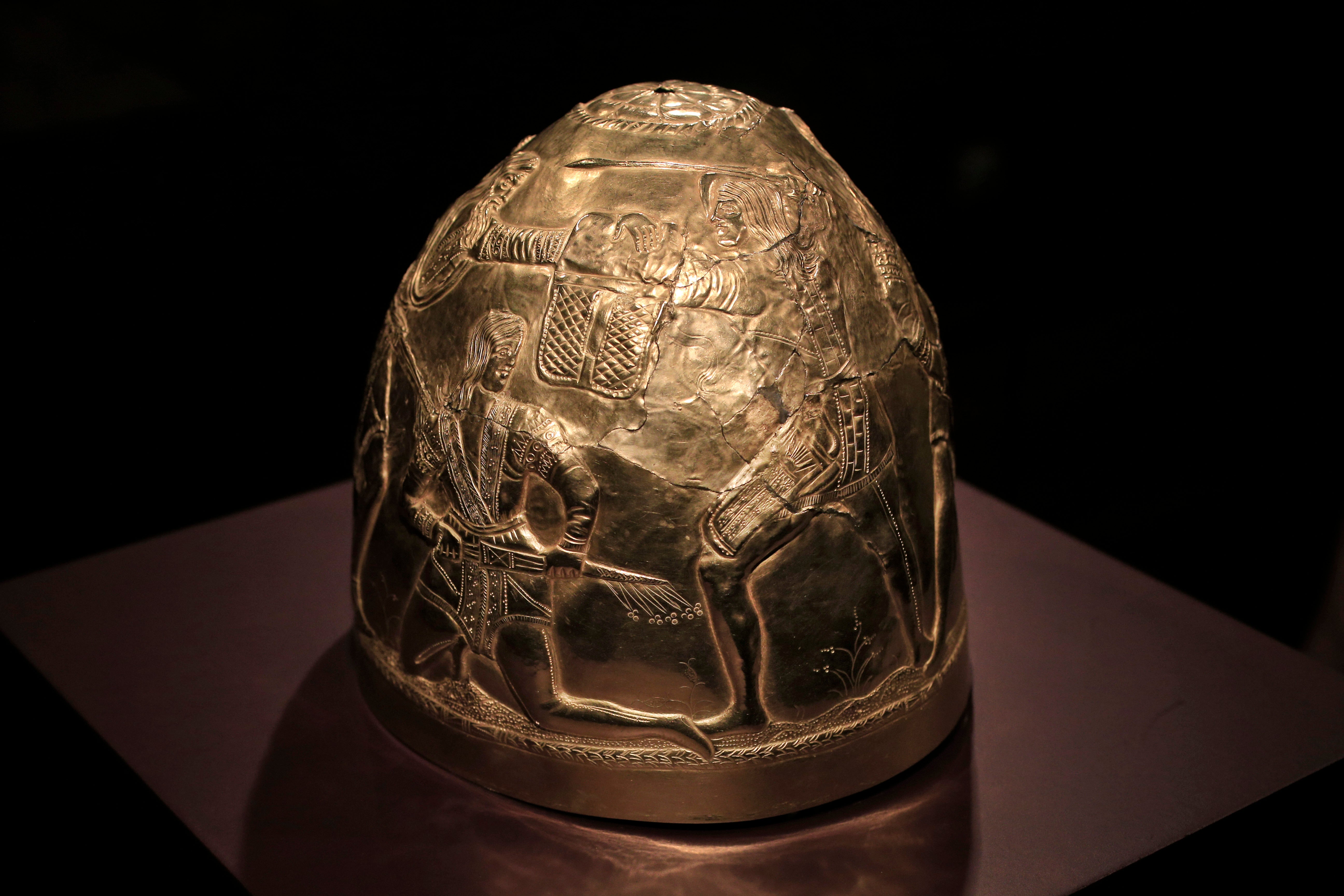Dutch court: Crimean treasures must be sent to Ukraine
An Amsterdam appeals court has ruled that a trove of historical treasures from Crimea that have been stored for years at a Dutch museum must be given to Ukraine

Your support helps us to tell the story
From reproductive rights to climate change to Big Tech, The Independent is on the ground when the story is developing. Whether it's investigating the financials of Elon Musk's pro-Trump PAC or producing our latest documentary, 'The A Word', which shines a light on the American women fighting for reproductive rights, we know how important it is to parse out the facts from the messaging.
At such a critical moment in US history, we need reporters on the ground. Your donation allows us to keep sending journalists to speak to both sides of the story.
The Independent is trusted by Americans across the entire political spectrum. And unlike many other quality news outlets, we choose not to lock Americans out of our reporting and analysis with paywalls. We believe quality journalism should be available to everyone, paid for by those who can afford it.
Your support makes all the difference.An Amsterdam appeals court ruled Tuesday that a trove of historical treasures from Crimea that have been stored for years at a Dutch museum must be given to Ukraine, saying they are “part of the cultural heritage of the Ukrainian state.”
The judgment, which can be appealed to the Dutch Supreme Court, upheld a lower court's ruling and was the latest development in a protracted legal tug-of-war about the fate of the artifacts that stems from Russia s annexation of Crimea.
Russia annexed the Crimean Peninsula from Ukraine in 2014, a month after the Allard Pierson Museum opened the “Crimea — Gold and secrets of the Black Sea” exhibition, sparking a dispute over where the borrowed treasures should be returned to. The exhibits have been stored in Amsterdam pending resolution of the dispute.
Nearly five years ago, an Amsterdam court ruled that the objects must be returned to Ukraine and not to four museums in Crimea that loaned them out for a 2014 exhibition. At the time, the court didn’t rule on the actual ownership of the approximately 300 artifacts, saying that the issue must be resolved by a Ukrainian court.
Among the most stunning objects in the exhibition are a solid gold Scythian helmet from the 4th century B.C. and a golden neck ornament from the second century A.D. that weigh more than a kilogram (two pounds) each.
Ukrainian President Volodymyr Zelenskyy commented on Twitter, hailing “the long-awaited victory" and saying he was “grateful to the court for a fair decision.”
“We always regain what’s ours,” Zelenskyy tweeted. “After the ‘Scythian gold,’ we’ll return Crimea.”
Kremlin spokesman Dmitry Peskov wouldn’t comment when asked about the ruling during a conference call with reporters.
Tuesday's ruling said that while the trove originates from Crimea and therefore “may be considered part of Crimean cultural heritage, they are part of the cultural heritage of the Ukrainian State” as it has existed since independence in 1991.
The court said in a statement that "the cultural interest that lies in preserving the museum pieces is a public interest of the Ukrainian State that carries great weight.
____
Corder reported from The Hague. Associated Press writer Vladimir Isachenkov in Moscow contributed.